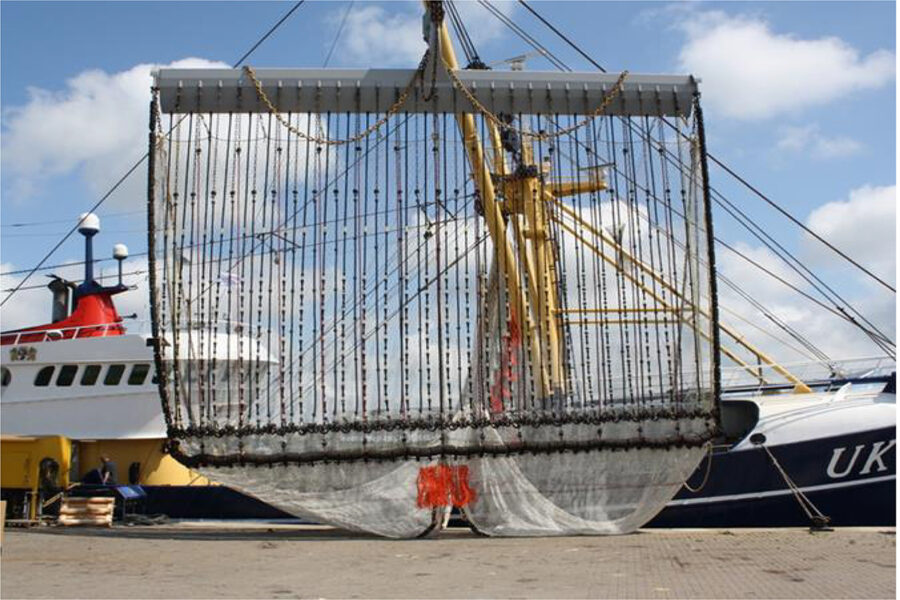Dutch legal challenge to EU pulse ban
Dutch fishermen have mounted a legal challenge to the EU ban on electric pulse beam trawling, reports Tim Oliver
Dutch agriculture minister Carola Schouten has filed an application with the European Court of Justice (ECJ) in Luxembourg, calling for the ban to be overturned.
She said in a letter to the Dutch parliament that the EU Council and European parliament have breached several parts of EU law. She claims the ban on pulse fishing is not based on the best available science, and that it harms innovation and technological development.
The EU parliament voted to ban the method in April. The ban is being phased in, with 42 of the 84 licences being withdrawn this year and the remainder by July 2021.
The UK has already banned pulse fishing inside its 12-mile limit, and is expected to extend the ban to its 200-mile EEZ/median line waters after Brexit.
UK industry leaders and French green group BLOOM slammed the attempt to overturn the ban. Jerry Percy, leader of NUTFA, which campaigned strongly for a ban on pulse beaming, said there was ‘absolutely no reason for the ban to be reconsidered’, and that electric beaming was ‘a very real threat’ to the economic survival of inshore fishermen around the southern North Sea.
He told Fishing News: “It’s not often in fisheries in general and fisheries science in particular that something is absolutely clear-cut and unequivocal.
“The impacts of electric pulse fishing certainly are, and the recent CEFAS report underlines these dreadful levels of destruction, first observed by inshore fishermen in the southeast of England and transmitted to Brussels via the Low Impact Fishers of Europe (LIFE) platform, of which NUTFA is a founder member.
“Despite the best efforts of representatives of the Dutch electro-fishing fleet and their MEP to paint black as white, and the efforts of others to effectively support the method whilst resolutely sitting on the fence, the ban was won on the basis of factual and independent science.
“There is absolutely no reason for the ban to be reconsidered in the light of such obvious and proven damage to the seabed, and the very real threat to the economic survival of so many inshore fishermen around the southern North Sea.”
Brexit Party MEP for the East of England June Mummery, who was a leading figure in the campaign for a pulse ban, said that a reverse of the ban could spell the end for many UK inshore fishermen.
In a video clip filmed in Ramsgate, she said that many areas of the seabed off the east coast had been ruined by this ‘barbaric’ fishing method, yet the Dutch ‘have the cheek’ to try to overturn the ban. She said that the attempt showed why Brexit was essential for the UK fishing industry.
“Only once we have reclaimed our waters from the Brussels stranglehold and returned control of our seas to parliament can we be sure to rid UK fisheries of the horrific pulse fishing method,” said the MEP.
“East Anglian and south coast fishers joined with their colleagues from across Europe to fight pulse fishing. Many had seen first-hand the damage to fish stocks, to gastropods, and to the fish themselves, caused by pulse fishing. Many small-scale fishers know that if it is allowed to continue, there would be little to no future for local small-scale boats. But with the Dutch challenging the pulse ban, it looks like we are going to have to fight all over again!”
She said that supporters of the ban have right on their side, and that they would fight this ‘dreadful’ fishing method, whatever the outcome of Brexit.
“I, for one, will be leading the fight, doing what is right for the ecology and the sustainability of Britain’s fisheries,” said June Mummery.
The attempt to overturn the ban was also slammed by the Paris-based BLOOM environmental group, which spearheaded the campaign to ban electric fishing.
BLOOM director Sabine Rosset said: “Despite the ongoing attacks by the Dutch and their attempts to force their way through, we remain calm and confident that electric fishing will be totally and definitively banned.
“They are undoubtedly in panic because we have ruined their dreams of electric fishing, but independent studies are beginning to show up, and they only confirm everything we have said during our campaign.
“As required by the new European regulation, we are therefore currently witnessing a drastic reduction in the number of electric trawlers, before their final disappearance in June 2021. The Dutch will remain unsuccessful.”
- A new report by CEFAS on a study of the impact of pulse trawling on marine ecosystems has found that species diversity was 21-57% lower in the area studied where electric fishing is practised, compared to a control area with no pulse fishing. It also found that there were 2.6 times fewer soles – targeted by pulse beamers – in the pulse fishing area than in the control area.
The study was conducted in two comparable areas off the south of England, one regularly fished by electric trawlers and the other not.
More details will follow next week.
Dutch buy-out talks
The Dutch government is reported to be working with Dutch fishermen and industry bodies to examine the options for a transition fund to buy out some of the approximately 130 beamers that concentrate on North Sea sole and plaice as their primary target species, reported Fiskerforum.
As well as the ban on pulse fishing, the beamer fleet has been hit by the massive growth in wind farms, which has placed large areas of the North Sea out of reach for fishing. There are also fears for the future after Brexit.
A further factor is that the younger generation is less inclined to see fishing as a career. There is no clear succession within many fishing families, and crews are likewise becoming increasingly hard to find.








